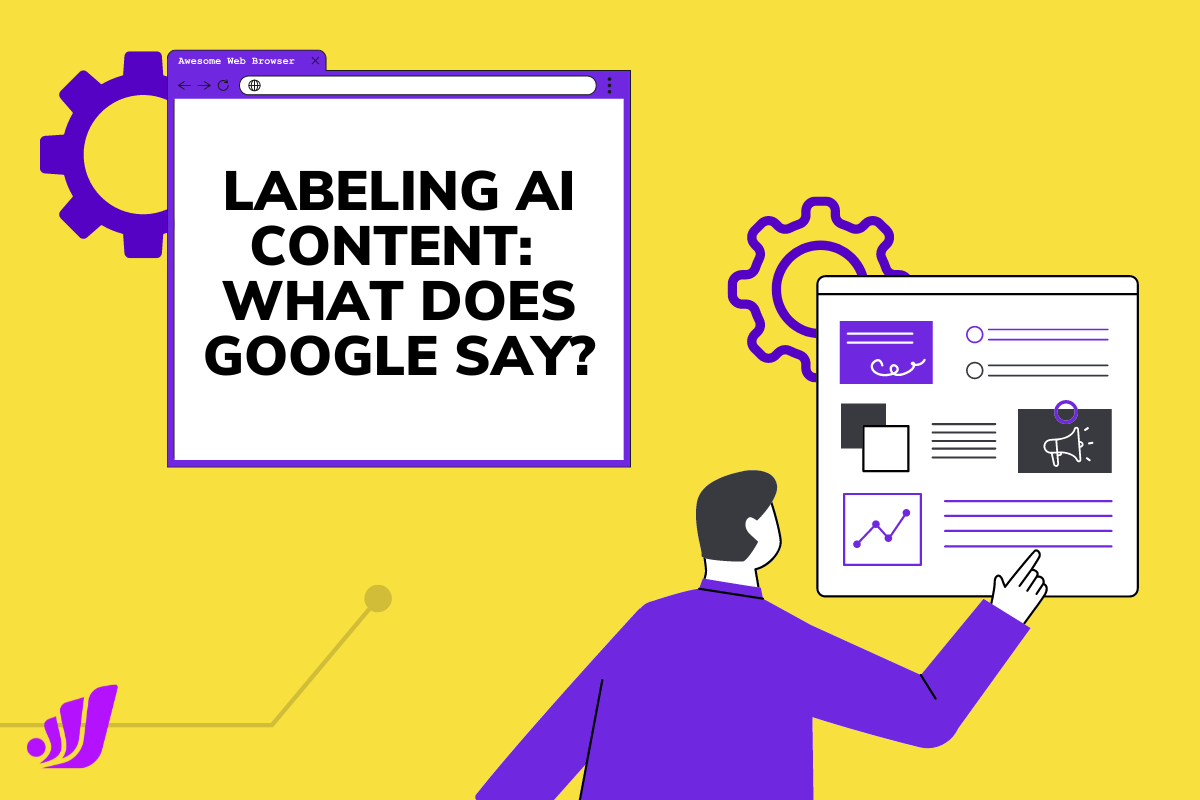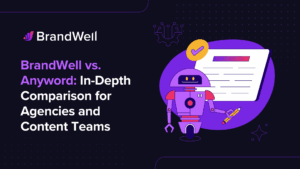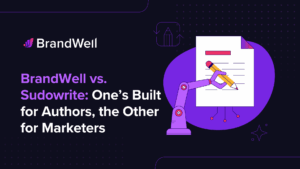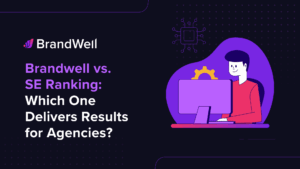So 85.1% of marketers are now using AI for article writing, and one-third of business owners are planning to use ChatGPT for writing website content.
But should you tell your readers that your content was written by a machine?
And will Google penalize you for not disclosing it?
Speakers at the Google Search Central Live Tokyo 2023 clarified Google’s stance on labeling AI content and how the search engine ranks it based on E-E-A-T.
This comes on the heels of the European Union urging social media companies, including Google and Facebook, to start labeling AI-generated content — both text and images — to fight fake news from Russia.
So what does Google say about labeling AI content?
Google’s Stance: Labeling AI Content is Optional…
Does Google distinguish between AI-generated content and human-written content?
According to Gary Illyes, Google does not label AI-generated content.
But does it require you to label your content as such?
Search marketing expert Kenichi Suzuki, who presented at the event, said Google does not require publishers to label AI content.
Here’s an English translation of what he wrote in his Japanese blog:
“From Google’s point of view, it is not necessary to explicitly label AI-generated content as AI-generated content. If you judge that it is necessary from the user’s point of view, you can specify it.”
However, Google does recommend that publishers label AI-generated images with IPTC metadata.
… But Human Editing is Mandatory
While Google does not require publishers to label their text as AI-generated, it warns against publishing AI content as-is. Google strongly recommends having human editors review AI content before publishing.
The same approach applies to translated content — always have human eyes review it before going live.
While the EU pushes for transparency, Google leaves it up to publishers to decide whether labeling is beneficial to their readers. If you think that labeling AI content leads to a better user experience, then go ahead and do it.
And if you choose to create content with AI, make sure a human editor reviews it first to ensure high-quality and trustworthy content.
Natural Content is a Ranking Priority
Googlers reiterated the importance of high-quality content for good rankings, regardless of whether it’s generated by AI or not.
But since search engine algorithms and signals are based on human content, they will obviously rank natural content over artificial text.
As Kenichi Suzuki explains:
“ML-based algorithms and signals are learning from content written by humans for humans. Therefore, understand natural content and display it at the top.”
How Do You Get AI Content to Rank Well?
The answer is still E-E-A-T.
Google evaluates, and ranks, web content according to its E-E-A-T guidelines — Experience, Expertise, Authoritativeness, and Trustworthiness.
Search quality raters are trained to look for evidence that the author is trustworthy because they have the expertise, experience, and authority in their field or niche.
But with AI having no experience whatsoever with any topic or product, how will it meet E-E-A-T?
Impossible right?
There’s no way AI can meet the quality threshold for content that requires experience.
This is where the real-world experience and subject matter expertise of a human writer comes in.
Evolving Policies on Artificial Intelligence
Artificial intelligence is no longer a thing of the future. It’s here, reshaping various sectors including digital marketing.
A significant percentage of companies are moving beyond pilot programs to deploy AI at scale across their operations.
This widespread adoption of AI has triggered an urgent need for new policy frameworks to address critical questions about ethics, accountability, and transparency in their application.
News outlets that rushed to test automated content generation are now taking a pause as they grapple with challenges around accuracy and trustworthiness.
Although chatbots are not designed for content creation:
- 69% of marketers are using ChatGPT
- 30% of businesses plan to use ChatGPT to write website content
- 44% of businesses plan to use ChatGPT to write content in multiple languages
This is why Google strongly recommends that publishers keep a keen eye on their content quality — especially when it’s written by AI.
Of course, it helps if you use a tool specifically created FOR producing long-form SEO content (and quit trying to “hack” ChatGPT for this purpose). BrandWell is that tool. Here’s how it compares to the infamous chatbot at a glance:
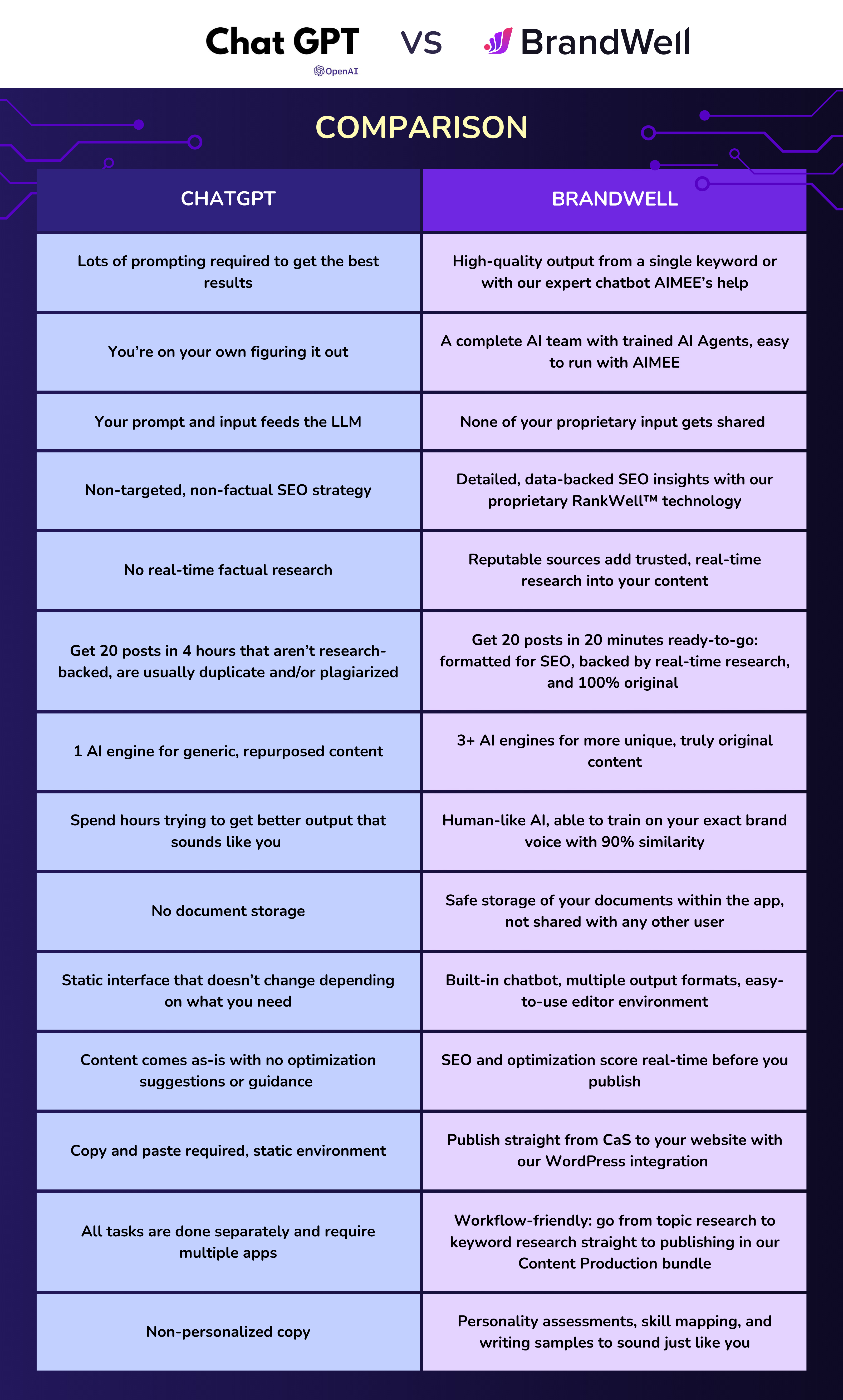
To Label or Not To Label AI Content? That’s Your Call
To recap Google’s latest policy on AI content:
- No mandatory requirement from Google for labeling AI-generated texts — it’s up to the publisher’s judgment call.
- Human editors should review and edit AI-generated content before publishing.
- Deliver top-notch quality content that resonates with your audience, regardless of its origin.
AI-generated content is on the rise in the publishing industry, but whether you’re writing content manually or automatically, Google continues to emphasize quality — specifically trustworthy authorship.
Human review is crucial before publishing AI-generated content, especially for translated and artificially created texts, as algorithms prioritize natural language when determining SERP rankings.
As AI adoption continues to revolutionize industries, expect new policy frameworks to emerge around their usage.
While Google does not require labeling AI-generated content, the European Union is already urging social media companies to label their written and visual content to fight fake news — which could be a sign of things to come.
Beyond AI content labeling, one of the best things you can do is ensure your content is produced with care. And, the tool that puts content quality, relevance, and optimization at the top of the list is BrandWell. Find out how you can create better AI content and scale your production with BrandWell.

